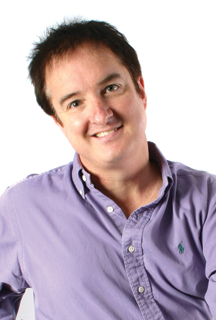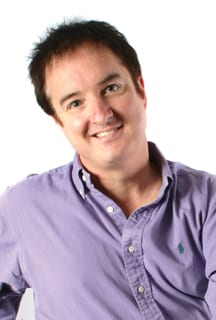
Paul J. Williams
On the morning of Tuesday, Sept, 11, 2001, I was going through my usual “get ready for work” routine in my apartment in Astoria, Queens. I was working as a long-term temp secretary for a law firm in Manhattan, but didn’t usually go in until 10 a.m. After taking a shower, my routine consisted of coming back into my bedroom and turning on the stereo to KTU for their morning show while getting dressed.
It was a little before 9 a.m. Rather than the usual hilarity, the DJs were very seriously discussing the fact that the World Trade Center has just been hit by a jet. I went into the living room to turn on the TV, still only half-dressed. I sat in front of the television for the next few hours, getting up only to get my cell phone to try to call my parents, or going to the door to talk to my landlords who lived downstairs. My roommate, who also worked in Manhattan, always left for work early in the morning and had already been at his office in Midtown when the first plane hit. As the reality of what was happening began to sink in, New York began to shut down. All subway service ceased. All bridges and tunnels closed to vehicular traffic. Bridges became pedestrian only, and only leaving Manhattan. No one was allowed to enter the city. My roommate began his long walk home.
After I was able to reach my parents on the phone, we talked and watched the first tower fall together. My mother began to cry on the other end of the line. Assuring them that I was safe in Queens, I hung up, but continued watching television coverage. When the second tower began to collapse, I truly thought I was watching a replay of footage the first tower. I was overcome with emotion. By noon, I had to get out of the house.
With no public transportation running in the city, I got on my bicycle, not really knowing where I was going to go. I stopped at a bodega to buy a disposable camera. I rode as close along the water’s edge of Queens as I could, stopping occasionally to take pictures of the smoke-filled air of Lower Manhattan in the distance. I kept riding, stopping to take pictures. Eventually, I found myself at the Promenade in Brooklyn, directly across the harbor from Lower Manhattan. “This is all so surreal,” I kept thinking. I rode up to the Brooklyn Bridge which was a mass of humanity all trying to flee Manhattan. Police everywhere were trying to maintain some sense of order. More pictures. I’m grateful that the wind was blowing the smoke from the towers in the opposite direction, yet the burning smell was everywhere. I was absolutely in awe. What had happened? Lord, please let there be survivors of all this. My adrenaline had begun to wane and I realized how glad I was that I could put my bicycle on the subway to get back home. No. Wait. All public transportation was shut down. I began the ride back to Astoria, arriving to find my roommate safely at home. We just look at each other and said, “Wow.” What happened?? It was a quiet night at home, glued to the TV.
I actually went to work the next day. As a temp, I didn’t get paid time off and I needed the money. But not a lot of people came to work. Pretty quiet day. That night, I decided to get on my bicycle and explore Manhattan. The subways were running again, so I put the bike on the train and went to Times Square.
It was dusk. I started riding south. Police had completely shut down access to anything south of 14th Street, unless you could prove you live there. I found an unguarded street blockade and slipped past it, riding down to the Village. I called my parents to report in. The word I kept using was surreal. There was no traffic. The city was quiet. I sat, cross-legged, in the middle of Seventh Avenue at Christopher Street. Had the Rapture occurred, and I’ve been left behind? Where was everyone?
I rode over to Sixth Avenue, which runs north. There, at the intersection with Houston Street, was a crowd of New Yorkers. Neighbors and residents of the area have lined the streets to cheer on the police cars, fire trucks and 18-wheelers that were carrying debris away from the World Trade Center. Surreal. People were holding hand-made signs, thanking the police and firefighters. Already, people knew. This was changing New York forever. Mayor Giuliani had been encouraging citizens to get back to work. New Yorkers will not be defeated by this. Again, surreal.
Twenty months later, I found my life changed immensely. The temp market dried up. I was not performing as much. I was creeped out about living in a city that had been such a target. In my own ways, I started to self-destruct. I needed a change. On May 31, 2003, I moved back to Dallas.
All because of 9/11? Who knows? But that one day has colored my entire existence in many ways. Now, when my office building in downtown Dallas has a fire drill, I seem to be the only one here who takes it seriously. Planes taking off from Love Field often look like they’re headed straight for my building. I can hear the sound of these same planes flying seemingly close, right over my condo. Daily.
Do I remember 9/11/01? You bet. Every day. Surreal.
— Paul J. Williams
Williams initially wrote this piece for the 10th anniversary of 9/11.











